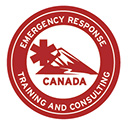Remote First Aid
The Remote First Aid 24-hour program consists of 2 days for theory instruction and 1 day for demonstration of acquired practical skills in a wilderness setting. It was designed for those who work in a `non-standard` environment or who recreate in the backcountry. It is RMAM’s “introduction” to wilderness first aid and as such is not suitable for those who will find themselves in a leadership, guiding or professional responder capacity, or for those who will be venturing into truly remote regions for an extended period of time with no additional help available to them. The course focuses from the outset on managing emergencies in remote wilderness locations.
Prerequisite: None
Hours: 24
Delivery: Classroom/Field
Wilderness Advanced First Aid
The Wilderness Advanced First Aid 40-hour program is the wilderness first aid standard in terms of content and course length for outdoor activity leaders, teachers, instructors and SAR team leaders. The program consists of 3 days of theory instruction and 2 days for demonstration of acquired practical skills in a wilderness setting. Training focuses on the long term implications for initial care, stabilization and evacuation of patients in remote wilderness locations.
Prerequisite: None
Hours: 40
Delivery: Classroom/Field
Wilderness First Responder
The Wilderness First Responder 80-hour program consists of 6 days for theory instruction and 4 days for demonstration of acquired practical skills in a wilderness setting. It is a comprehensive, professional level course. It was designed for those who work extensively in a remote environment and who take on a leadership role in a backcountry or remote setting. It provides participants with the skills and techniques to manage emergencies over an extended period of time and offers experience in using more advanced equipment. The primary focus is in dealing with backcountry emergencies where specialized equipment is largely unavailable. However, we do look at conventional pre-hospital equipment that one may find available at lodges or with local Search and Rescue teams. The medical principles taught in the program align with the Wilderness Medical Society practice guidelines. Much of the course focuses on exploring scenarios where access and egress are difficult due to the nature of the immediate environment. This allows the participant to get comfortable with different situations where conventional techniques may not work and where the rescuer must use the principles of treatment for an effective outcome.
Prerequisite: None
Hours: 80
Delivery: Classroom/Field
